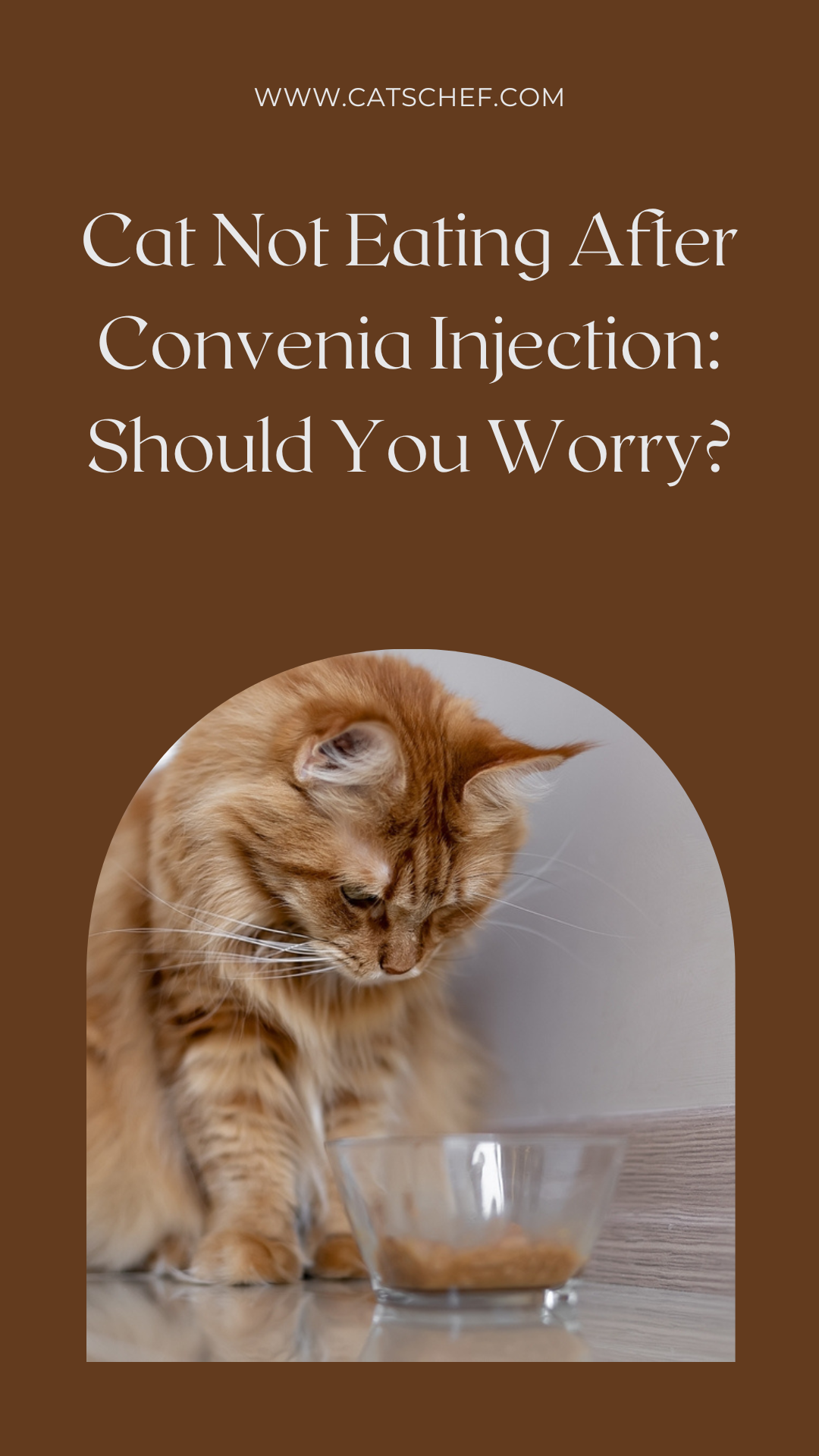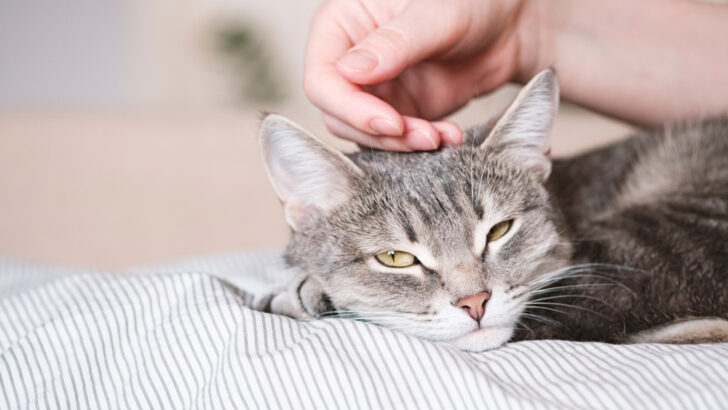If you’ve noticed that your cat is not eating after the Convenia injection, don’t worry. You’re not alone in this. Our dear feline babies often go on hunger strikes when they’re in pain, uncomfortable, or simply not feeling well. Still, it’s good that you’re doing some research.
As you probably know, Convenia is a long-lasting antibiotic that starts killing bacteria 4 hours after the injection and lasts for around 14 days. Because of the nature of this antibiotic, it’s normal for your feline to experience some side effects, but they shouldn’t last for more than a couple of days.
Although it could be a normal reaction to the injection, loss of appetite could also be a side effect you shouldn’t ignore. If you’ve noticed any changes in your cat’s behavior after Convenia, it’s crucial that you take her to the vet as soon as possible.
If you’re unsure whether her reaction to the injection is something worth worrying about, it’s good that you’re here. Although the vet will give you the exact cause behind your furbaby’s loss of appetite, I’m here to explain the most common reasons this happens.
Why is my cat not eating after Convenia injection?
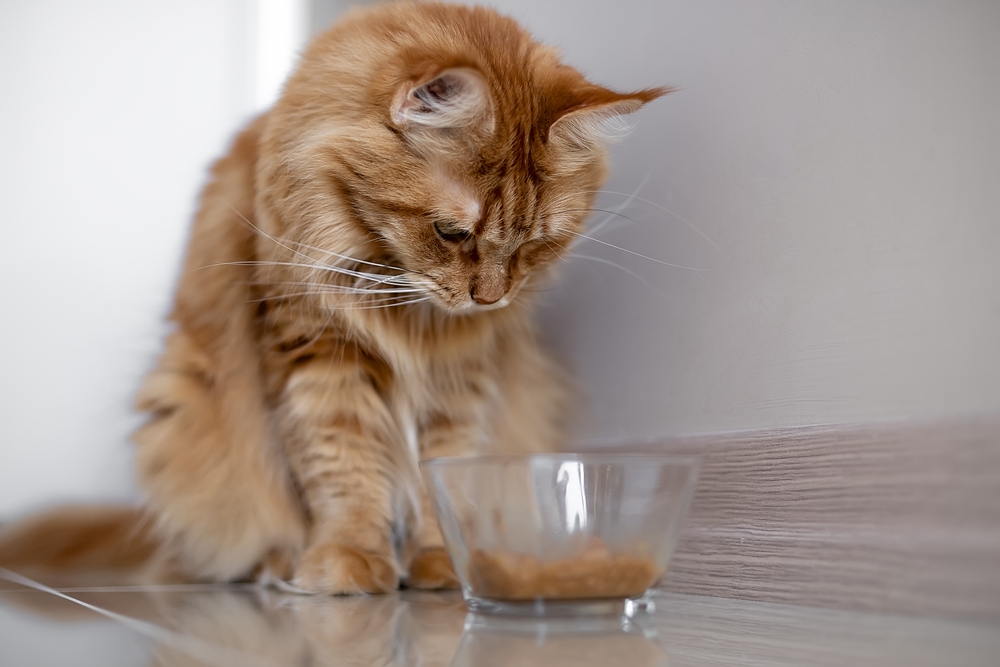
So, you noticed that your cat is not eating after the Convenia injection, and now what? Is there anything you can do to help your dear fluff? Well, luckily, there is! However, before you try to help your furbaby get better, it’s important to understand the reason behind her loss of appetite. Let’s find out more.
1. Nausea
If your furry companion is refusing to eat, there’s a high chance Convenia made her nauseous. I mean, think about it. When you’re feeling sick, what’s the last thing on your mind? Food, of course! Our feline buddies aren’t much different from us in that sense.
Why did you take your kitty to the vet in the first place? If it’s because of sickness, that could be the reason behind her loss of appetite. On top of that, other medications that your fluff was prescribed may also be the culprit.
Whatever it is, you should speak to your vet just to be sure. They’ll probably prescribe some anti-nausea medications, which will make your furbaby feel a lot better. Leaving your fluff to deal with it on her own could lead to even more issues that you definitely want to avoid.
Make a quick trip to the clinic, get a few anti-nausea pills, and she’ll be right back on her paws. Our feline friends require frequent and regular meals. It only takes them a few days of not eating to become malnourished, dehydrated, or even anorexic.
Because of that, it’s important to deal with the issue of nausea as soon as possible. Yes, you may get some anti-sickness medications, but you shouldn’t stop there. Make sure you give your diva some easily-digestible and bland food.
For instance, for a few days, give her a diet consisting of plain cooked chicken, white fish, and other foods her stomach can process easily. You should avoid giving her anything that has a strong taste or smell, as that could make her feel worse.
Just imagine smelling a can of tuna when you’re feeling sick! It’s like a nightmare, isn’t it? Well, your kitty may have the same reaction.
2. Food aversion
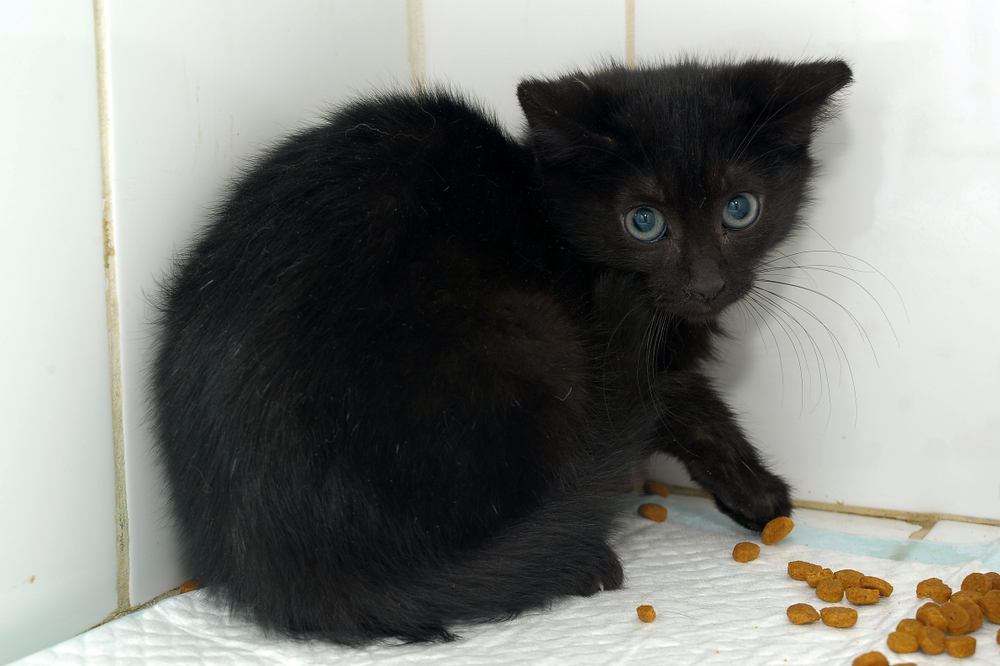
As a cat parent, there’s no point in me telling you that your furbaby is very sensitive. We all know that! Now that she got this fancy treatment, she’s been feeling a lot better, but not enough to make her start eating again. Oh no, no… Your diva needs more.
Because our furry companions are like sponges, it won’t take them much to associate certain foods with feeling nauseous. Quite like us, actually. I remember when I got sick after eating eggs once as a child, and I couldn’t eat them for years. Well, your kitty is just the same.
It won’t take them long to develop a complete food aversion after a certain meal made them nauseous. And, let me tell you one thing: It can seem almost impossible to make your cat get over it. As if it wasn’t a real challenge to feed her already!
Although it may seem impossible at first, there are some things you can do to make this a bit easier for yourself. Instead of banging your head against the wall trying to think of something, why not get a bit creative with your kitty’s meals?
I mean, you’d hate it if you had to eat the same meal every single day, right? Well, our feline friends like a bit of variety, too! Try some new flavors, textures, and cat food brands, or even cook something yourself! Your feline foodie will love it.
If you think it’s time to change her regular food to a new one, just don’t do it suddenly. Mix the new food with her old one, or add a bit of her favorite snacks. After some time, as you increase the new food in the mix, she’ll get used to it completely.
3. Pain
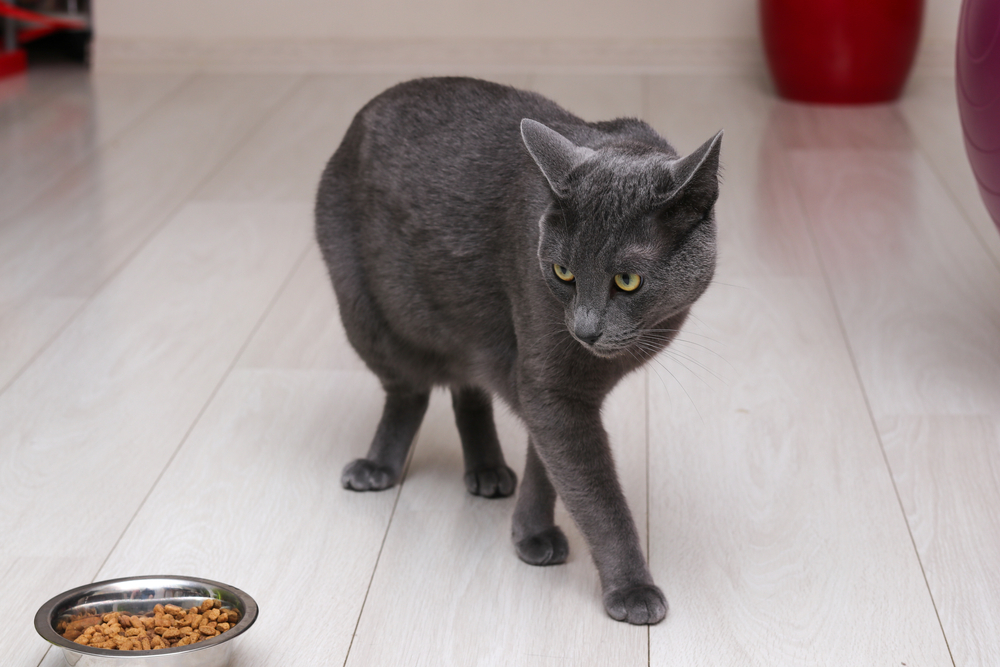
I know you hate the thought of your furball being in pain. Unfortunately, it’s one of the most common reasons they experience a loss of appetite. We all have days when we’re under the weather, and our cats can feel the same way! It’s completely normal, so don’t worry.
However, if your fluff is in pain, you should never ignore it. It could be a sign of a much more serious issue, so make sure you take her to the vet as soon as possible. There’s a high chance your kitty may be dealing with dental pain.
She’d rather avoid food altogether than feel pain every time she eats. It can cause her a great deal of distress, so until the pain stops, she won’t be able to focus on eating at all. Think about why your kitty got the Convenia injection in the first place.
Whether it’s for an infection, bite wounds, or anything that may be painful, she should be using some pain relievers during her treatment. Of course, you should never give her any kind of medication without the vet’s go-ahead, so make sure you do that first.
If she got some after her injection but you didn’t get any to give her at home, there’s a high chance the pain relief has worn off. Don’t go through your medicine cabinet looking for something to give her. She needs an exact dose that is appropriate for her feline body, and her vet will tell you exactly what to give her.
4. Fever
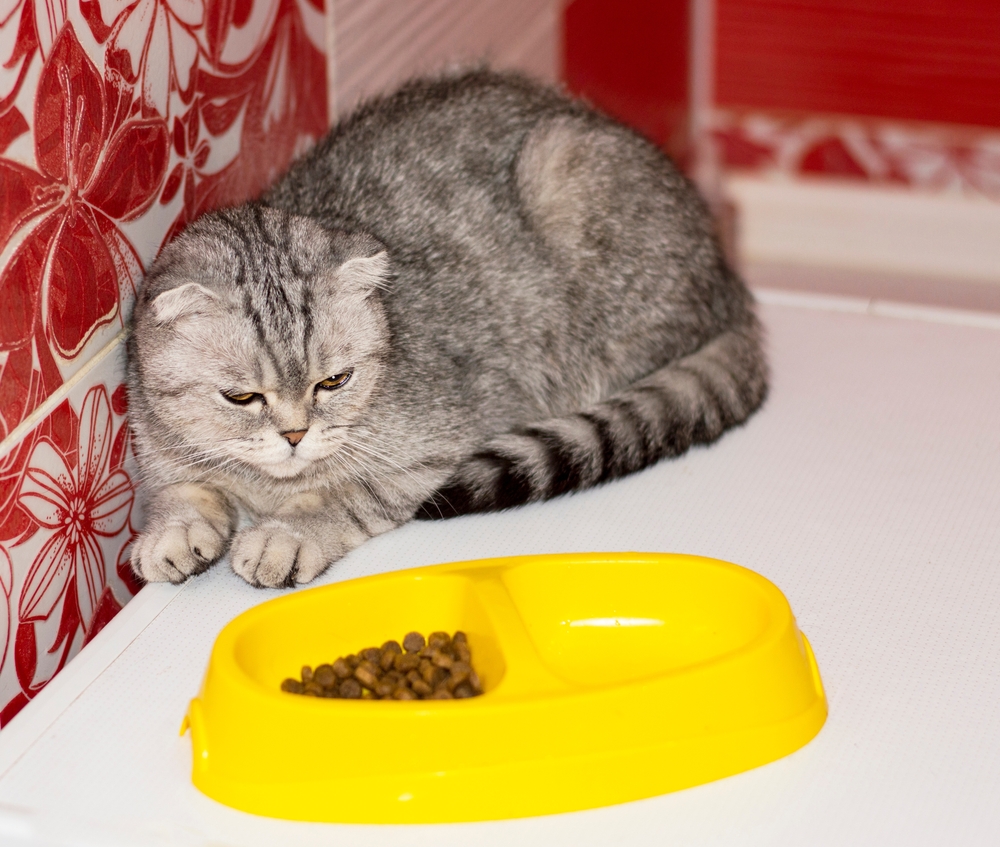
When you have a fever, you feel tired, weak, and generally not yourself. For cats, it may be even worse. On top of the usual symptoms of fever, such as shakiness, weakness, and feeling hot and cold, they could also feel a bit disoriented. In these cases, food becomes the last thing on their mind.
If you have a thermometer somewhere in your drawers, take your fluff’s temperature. If she has a fever, that’s probably why she’s been avoiding food lately.
But, how do you take her temperature? Easy! You can use a digital rectal thermometer, a little Vaseline, and another pair of hands that will give your fluff the cuddles she needs through this process.
A mild fever in cats is around 102.4°F (or 39.1°C), while a temperature over 103°F (or 39.5°C) is moderate. If you get anything above 104°F (or 40°C), take your cat to the vet right away. They’ll give you the medication to lower her temperature.
A high temperature could be a sign that your kitty needs different antibiotics, or that her infection is getting worse. That’s why regular vet check-ups are so important so they can keep an eye on her during her treatment.
What you can do, however, is keep her in a cool and cozy environment. Avoid putting her in direct sunlight or letting her nap in a hot room, as this could make her fever even worse.
5. Side effects
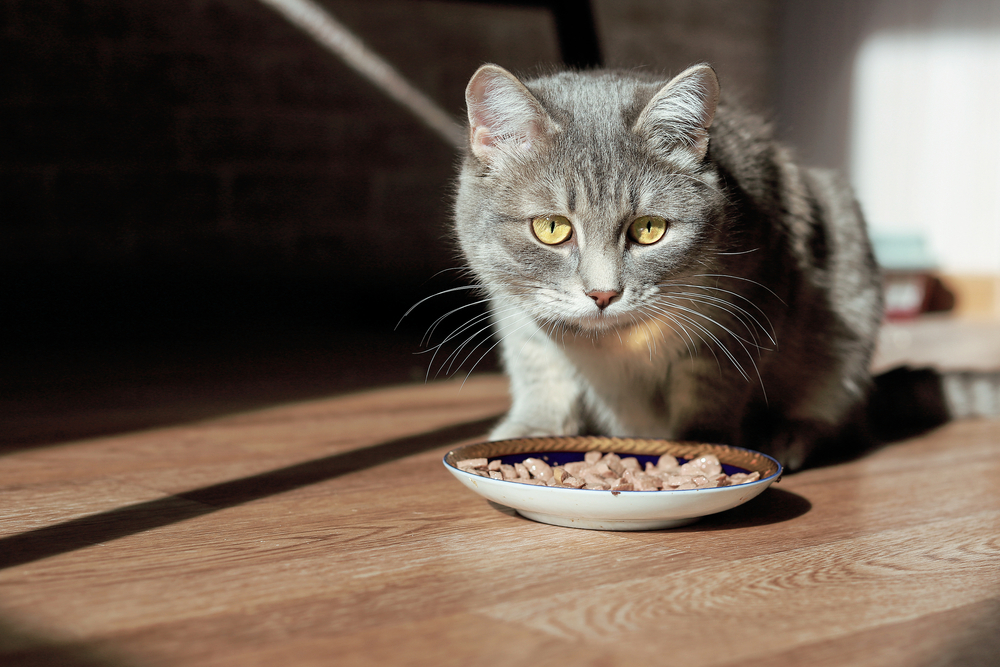
Convenia has many potential side effects to keep an eye out for. One of them is gastrointestinal disturbance, which can cause nausea, diarrhea, vomiting and, of course, loss of appetite. Even if your cat isn’t experiencing vomiting and diarrhea, low energy and appetite are still valid signs.
Make sure you make her food as appealing as possible. Heat it up so it feels and smells good, and use the things she loves the most. You’d rather eat something warm than a meal straight out of your fridge, right? Your cat would, too!
Never, ever, offer your cat milk, no matter how tempting it may be. Tom & Jerry lied to us! Our feline friends are lactose intolerant, and this could only make their condition worse. Stick to her favorite meals, add something new that you think she may like, and make sure her food is warm. That should do the trick.
